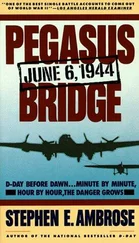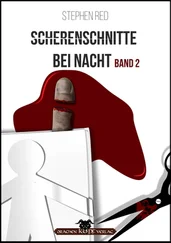Stephen Ambrose - Band of Brothers
Здесь есть возможность читать онлайн «Stephen Ambrose - Band of Brothers» весь текст электронной книги совершенно бесплатно (целиком полную версию без сокращений). В некоторых случаях можно слушать аудио, скачать через торрент в формате fb2 и присутствует краткое содержание. Жанр: История, на английском языке. Описание произведения, (предисловие) а так же отзывы посетителей доступны на портале библиотеки ЛибКат.
- Название:Band of Brothers
- Автор:
- Жанр:
- Год:неизвестен
- ISBN:нет данных
- Рейтинг книги:4 / 5. Голосов: 1
-
Избранное:Добавить в избранное
- Отзывы:
-
Ваша оценка:
- 80
- 1
- 2
- 3
- 4
- 5
Band of Brothers: краткое содержание, описание и аннотация
Предлагаем к чтению аннотацию, описание, краткое содержание или предисловие (зависит от того, что написал сам автор книги «Band of Brothers»). Если вы не нашли необходимую информацию о книге — напишите в комментариях, мы постараемся отыскать её.
Band of Brothers — читать онлайн бесплатно полную книгу (весь текст) целиком
Ниже представлен текст книги, разбитый по страницам. Система сохранения места последней прочитанной страницы, позволяет с удобством читать онлайн бесплатно книгу «Band of Brothers», без необходимости каждый раз заново искать на чём Вы остановились. Поставьте закладку, и сможете в любой момент перейти на страницу, на которой закончили чтение.
Интервал:
Закладка:
By the middle of July every veteran of Normandy was gone, except the long-suffering Webster, who still could not get the adjutant to accept his point total. Colonel Sink had given the high-point men a farewell speech: "It is with mingled feelings that your regimental commander observes the departure of you fine officers and men. He is happy for each of you. You have worked and fought and won the right to return to your homes and to your friends.
"I am sorry to see you go, because you are friends and comrades-at-arms.
"Most of you have caught hell at one time or another from me. I hope you considered it just hell and fair. It was never intended to be otherwise.
"I told you people to get those Presidential Citations and you did it. It will forever be to your credit and honor.
"Then God speed you on your way: May the same Fellow who led you by the hand in Normandy, Holland, Bastogne, and Germany look kindly upon you and guard you until the last great jump!"
At the end of July, the division was transferred by 40-and-8s to France. E Company went into barracks in Joigny, a small town south of Paris. Winters, Speirs, Foley, and others took furloughs in England. On August 6 the atomic bomb was dropped on Hiroshima, laying to rest the fears of another campaign in the Pacific. After that, everything in the airborne was in flux, with low-point men being transferred into the 17th Airborne, others into the 82nd. The 101st magazine, the Screaming Eagle, complained, "The outfit seems more like a repple-depple than a combat division."1
1. Rapport and Northwood, Rendezvous with Destiny, 775.
On August 11, Colonel Sink was promoted to assistant division commander. On August 22 General Taylor left the 101st, or what was left of it, to become superintendent at West Point. Shortly thereafter, the 506th packed up and moved out, to join the 82nd Airborne in Berlin. It was said that Colonel Sink cried when his boys marched to the Joigny depot for shipment to the 82nd. Webster thought it fitting that he do so, as he was "the heart and soul of our regiment." Writing in 1946, Webster went on: "Our beautiful dark-blue silk regimental flag with Mount Currahee, the bolt of lightning, and the six parachutes embroidered on it is rolled in its case, gathering dust in the National Archives in Washington."
On November 30, 1945, the 101st was inactivated. Easy Company no longer existed.
The company had been born in July 1942 at Toccoa. Its existence essentially came to an end almost exactly three years later in Zell am See, Austria. In those three years the men had seen more, endured more, and contributed more than most men can see, endure, or contribute in a lifetime.
They thought the Army was boring, unfeeling, and chicken and hated it. They found combat to be ugliness, destruction, and death, and hated it. Anything was better than the blood and carnage, the grime and filth, the impossible demands made on the body—anything, that is, except letting down their buddies.
They also found in combat the closest brotherhood they ever knew. They found selflessness. They found they could love the other guy in their foxhole more than themselves. They found that in war, men who loved life would give their lives for them.
They had had three remarkable men as company commanders, Herbert Sobel, Richard Winters, and Ronald Speirs. Each had made his own impact but Winters, who had been associated with the company from Day 1 to Day 1,095, had made the deepest impression. In the view of those who served in Easy Company, it was Dick Winters' company.
The noncoms especially felt that way. The ones who served as corporals and sergeants in combat had been privates in Toccoa. They had spent their entire three years in E Company. Officers, except Winters, came and went. Many of the officers continued their association with E Company as members of the battalion or regimental staff, but only Winters and the noncoms were present and accounted for (or in hospital) every day of the company's existence. They held together, most of all in those awful shellings in the woods of Bastogne and at that critical moment in the attack on Foy before Speirs replaced Dike. The acknowledged leaders of the noncoms, on paper and in fact, were the 1st sergeants, William Evans, James Diel, Carwood Lipton, and Floyd Talbert.
Sergeant Talbert was in the hospital at Fort Benjamin Harrison, Indiana, on September 30, 1945. He wrote a letter to Winters. He was no Webster as a writer, but he wrote from the heart and he spoke for every man who ever served in Easy Company.
He said he wished they could get together to talk, as there were a lot of things he wanted to tell Winters. "The first thing I will try to explain is ... Dick, you are loved and will never be forgotten by any soldier that ever served under you or I should say with you because that is the way you led. You are to me the greatest soldier I could ever hope to meet.
"A man can get something from war that is impossible to acquire anyplace else. I always seemed to strengthen my self-confidence or something. I don't know why I'm telling you this. You know all that.
"Well I will cut this off for now. You are the best friend I ever had and I only wish we could have been on a different basis. You were my ideal, and motor in combat. The little Major we both know summed you up in two words, 'the most brave and courageous soldier he ever knew.' And I respected his judgment very much. He was a great soldier too, and I informed him you were the greatest. Well you know now why I would follow you into hell. When I was with you I knew everything was absolutely under control."
Winters felt as strongly about the men as they did about him. In 1991 he summed up his company's history and its meaning: "The 101st Airborne was made up of hundreds of good, solid companies. However, E Co., 506 P.I.R. stands out among all of them through that very special bond that brings men together.
"That extra special, elite, close feeling started under the stress Capt. Sobel created at Camp Toccoa. Under that stress, the only way the men could survive was to bond together. Eventually, the non-coms had to bond together in a mutiny.
"The stress in training was followed by the stress in Normandy of drawing the key combat mission for gaining control of Utah Beach. In combat your reward for a good job done is that you get the next tough mission. E Company kept right on getting the job done through Holland—Bastogne—Germany.
"The result of sharing all that stress throughout training and combat has created a bond between the men of E Company that will last forever."
19 POSTWAR CAREERS
*
1945-1991
Forty-eight members of Easy Company had given their lives for their country. More than 100 had been wounded, many of them severely, some twice, a few three times, one four times. Most had suffered stress, often severe. All had given what they regarded as the best years of their lives to the war. They were trained killers, accustomed to carnage and quick, violent reactions. Few of them had any college education before the war,- the only skill most of them possessed was that of combat infantryman.
They came out determined to make up for lost time. They rushed to college, using the G.I. Bill of Rights, universally praised by the veterans as the best piece of legislation the United States Government ever conceived. They got married and had kids as quickly as possible. Then they set out to build a life for themselves.
They were remarkably successful, primarily because of their own determination, ambition, and hard work, partly thanks to what they had taken from their Army experience that was positive. In the Army they had learned self-confidence, self-discipline, and obedience, that they could endure more than they had ever thought possible, that they could work with other people as part of a team. They had volunteered for the paratroopers because they had wanted to be with the best and to be the best that they could be. They had succeeded. They wanted nothing less from civilian life, and there too they succeeded.
Читать дальшеИнтервал:
Закладка:
Похожие книги на «Band of Brothers»
Представляем Вашему вниманию похожие книги на «Band of Brothers» списком для выбора. Мы отобрали схожую по названию и смыслу литературу в надежде предоставить читателям больше вариантов отыскать новые, интересные, ещё непрочитанные произведения.
Обсуждение, отзывы о книге «Band of Brothers» и просто собственные мнения читателей. Оставьте ваши комментарии, напишите, что Вы думаете о произведении, его смысле или главных героях. Укажите что конкретно понравилось, а что нет, и почему Вы так считаете.



![Stephen Ambrose - Citizen Soldiers [Condensed]](/books/346737/stephen-ambrose-citizen-soldiers-condensed-thumb.webp)
![Stephan Orth - Behind Putin's Curtain - Friendships and Misadventures Inside Russia [aka Couchsurfing in Russia]](/books/415210/stephan-orth-behind-putin-s-curtain-friendships-a-thumb.webp)





